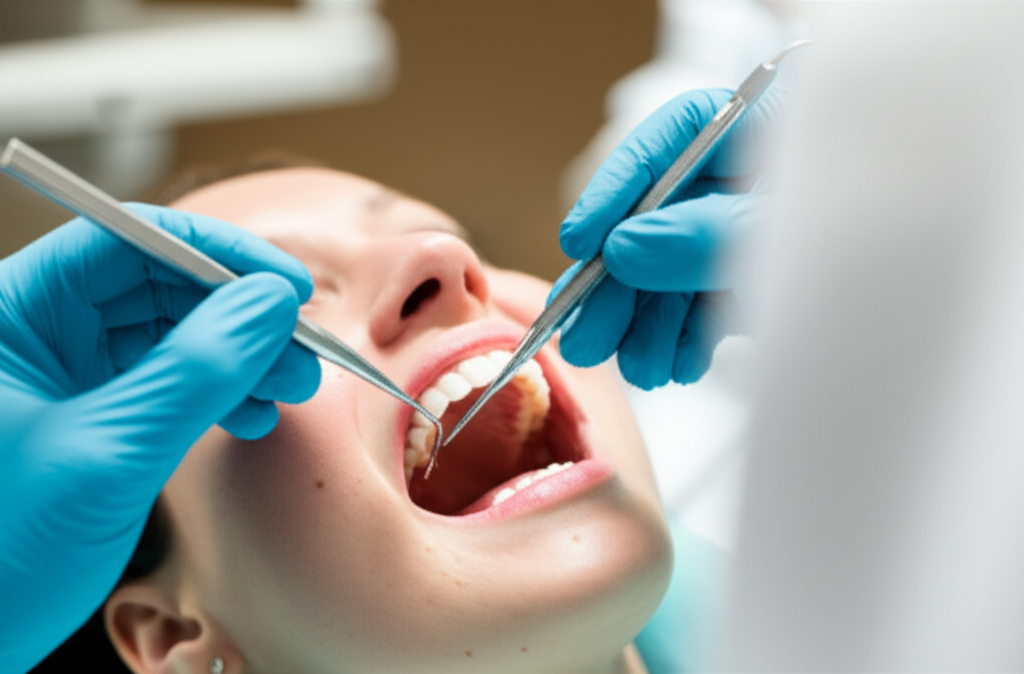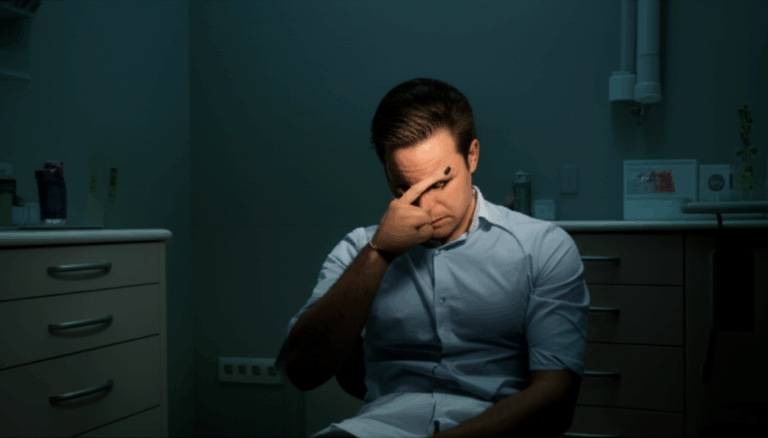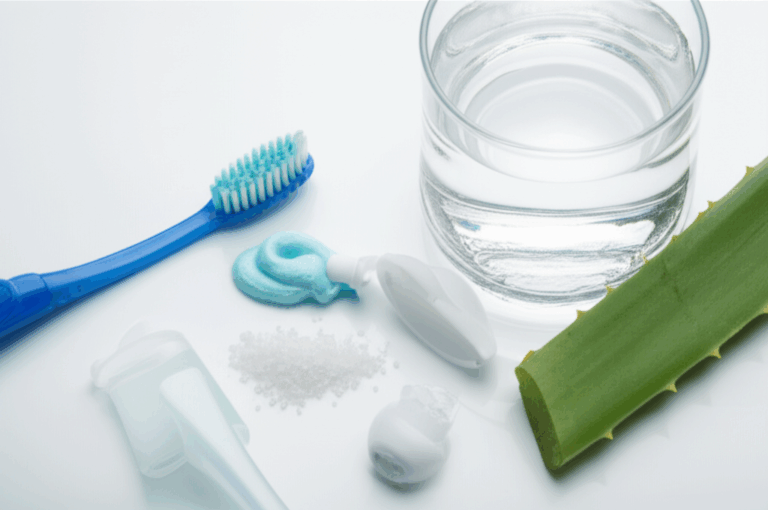
How Many Dental Injections Can a Dentist Safely Give You? Understanding Local Anesthetic Limits
Are you worried about how many dental injections your dentist can give? Wondering if too many “shots” are risky? This article shares, in simple words, why there isn’t an exact number, what really keeps you safe, and how dental workers—like our friends at iStar Dental—protect your smile every step of the way. Let’s learn how dentist shots work and what you can do to feel calm at your next visit.
Table of Contents
The Real Question: Is There a Set Number of Dental Injections?
Let’s get to the main thing: There isn’t a set number of safe dental injections for everyone. Some people worry they’re getting “too many shots.” The truth is, dentists don’t think about the number of needles—they look at how much medicine is being given. It’s like asking, “How many cups of water can I drink?” It depends on the size of the cup and how thirsty you are.
Dentists care about your health, the tooth being fixed, and your body weight when choosing the right dose. Sometimes, fixing a tooth needs just one shot. Other times, numbing a few teeth takes more. What really matters is your safety, not how many times you get poked.
Have I ever been scared of dental shots? Of course! But once I learned it’s the amount of medicine, not the number of pokes, that really matters, I felt much better.
Why Does the Amount of Anesthetic Matter?
Local anesthetic is the “numbing medicine” dentists use so you don’t feel pain while they work. It works by stopping signals from your teeth and gums from getting to your brain, so dentists can work while you’re comfy. Safe limits keep you from getting sick.
Dentists use little glass tubes called carpules with medicine inside, each holding about 1.7 or 1.8 milliliters. The dentist picks how many to use based on what you need. The real question: How much medicine is in all those tubes together?
Giving too much numbing medicine at once can make someone feel bad. That’s why dentists check your weight and health carefully. Most people never get close to the risky amount—but you can relax knowing a careful dentist is watching the numbers.
What Decides How Much Anesthetic You Can Get?
Here are things dentists think about before giving a shot:
- Your Weight and Age: Bigger kids and grownups can have more. Kids and older people need special care with smaller doses.
- Your Health History: People with heart trouble, high blood pressure, diabetes, or kidney and liver problems should usually get less.
- Medicines You Take: Some pills (like beta-blockers) can change how your body handles anesthetics.
- Allergies: Being allergic to things like lidocaine or articaine is rare, but dentists always check first.
- Type of Anesthetic: Different drugs work faster or slower and last longer or shorter. Some—like bupivacaine—last a long time but are only used for certain jobs.
- With or Without Epinephrine: This is a chemical (also called adrenaline) that helps the numbing last longer and keeps it from spreading too fast. Some people shouldn’t use it.
Table: What Affects How Much Dental Numbing Medicine is Safe for You?
| Factor | Why It Matters |
|---|---|
| Patient Weight/Age | More weight = higher max |
| Medical Conditions | May lower safe amount |
| Medicines & Allergies | Can interact with drugs |
| Anesthetic Type & Dose | Different max amounts |
| Use of Epinephrine | Allows higher safe dose |
| Area & Type of Treatment | Large area needs more |
How Do Dentists Calculate the Safe Dose?
This is where skill and know-how come in. Dentists use Maximum Recommended Dose (MRD) charts, usually using milligrams per kilogram (mg/kg) of your weight. Here’s how to picture it:
Let’s say you weigh 66 pounds (about 30 kilograms). For lidocaine (the most common numbing medicine), the top safe amount is about 4.4 mg for each kilogram. That means 30 × 4.4 = 132 mg for a child, which is much less than for an adult.
A regular tube (carpule) of 2% lidocaine has about 36 mg. In this example, that child could safely have up to 3–4 tubes—not 8 or 10. Grownups, who weigh more, can safely get more tubes—but your dentist always does the math.
Here’s a table showing safe top doses for common dental numbing drugs, checked by dental experts like Dr. Joe Dental:
| Anesthetic Type | Carpule Size | Mg per Carpule | MRD (mg/kg) | Max Dose (Healthy Adult) | Notes |
|---|---|---|---|---|---|
| Lidocaine (2%) | 1.8 ml | 36 mg | 4.4 | 300 mg (ASA I/II) | Most used, safe with epinephrine |
| Articaine (4%) | 1.7 ml | 68 mg | 7.0 | 500 mg (ASA I/II) | Strong numbing, used for tough jobs |
| Mepivacaine (3%) | 1.8 ml | 54 mg | 6.6 | 400 mg (ASA I/II) | Used if no epinephrine |
| Prilocaine (4%) | 1.8 ml | 72 mg | 6.0 | 400 mg (ASA I/II) | Watch for certain side effects |
| Bupivacaine (0.5%) | 1.8 ml | 9 mg | 1.3 | 90 mg (ASA I/II) | Lasts the longest, slow starting |
ASA I/II: Healthy or only mild health problems; lower amounts for people with sickness
Source: Malamed SF, Handbook of Local Anesthesia, 7th ed., Dr. Joe Dental
Common Dental Anesthetics and Their Limits
Why are there different kinds of numbing shots?
- Lidocaine: The “standard,” used most often. Lasts about 1–2 hours. Safe for almost everyone.
- Articaine: Stronger, goes deeper. Helpful when lidocaine isn’t enough.
- Mepivacaine: Used if you can’t have epinephrine (like with bad heart trouble).
- Prilocaine: Can be used without epinephrine too, but not okay for all.
- Bupivacaine: For long treatments or when pain should be blocked even after the dentist is done.
Dentists pick what works best based on you and your health, not just whatever’s close by.
Why Dentists Sometimes Give More Than One Injection
Ever think, “Why am I getting a second shot? Didn’t the first one do it?”
There are good reasons for this:
- Spreading the Numbness: You might need to be numb on both sides of a tooth or on more than one tooth.
- Thick Jawbone: Sometimes one shot doesn’t reach all the way in, so your dentist gives a little more to really make you numb.
- Bigger or Tougher Work: Pulling a wisdom tooth takes more medicine than fixing a tiny cavity.
- How Your Body Works: Some folks use up the medicine faster and need more to stay numb.
- Topping Up: If the numb feeling fades too soon, the dentist adds more—but always checks your safe limit.
A good dentist listens to how you feel. If you still feel pain, tell your dentist instead of trying to be tough.
How Your Dentist Keeps You Safe During Numbing Shots
Dentists learn how to stop problems before they start. I’ve seen dental workers always follow these steps:
- Ask About Your Health: They want to know about heart, liver, and kidney issues, allergies, and the pills you take.
- Careful Dose Checks: Dentists use the numbers and charts for your weight and health.
- Slow, Gentle Shots: Giving the shot slowly makes it hurt less and keeps the medicine from going in too fast.
- Aspirating First: The dentist pulls back the needle to be sure not to inject into a blood vessel.
- Picking the Right Drug: They may use medicine without epinephrine if you have health troubles.
- Keeping Watch: Your dentist (or helper) stays close after the shot to look for any rare side effects.
Dental teams even practice what to do if something goes wrong. That’s what I like about working with a china dental lab that puts safety first!
Signs You’ve Had Too Much Anesthetic: When to Speak Up
It’s rare, but getting too much numbing medicine can cause trouble. Here’s what to look for:
Mild Signs:
- Dizziness or feeling funny
- Ringing in your ears
- Weird metal taste in your mouth
- Numb lips (outside the work area)
- Feeling jumpy or nervous
Serious Signs:
- Hard time talking or slurred words
- Muscle twitching
- Mixed up or confused thinking
- Slow heartbeat or trouble breathing
- In very rare cases, seizures
If you notice any of these, tell your dentist or their helper right away. Dental staff are trained for problems, but saying something early keeps you safer.
Your Role in Safe Dental Visits
You’re not just a “passenger” in the chair. What you do helps keep things safe!
- Tell the Dentist Everything: Share all your health troubles, medicines, and tough times with dental shots. Don’t keep allergies secret, even if you think they’re not a big deal.
- Bring a List: Write down all your medicines, even regular ones you buy at the store.
- Ask Questions: Not sure about a certain numbing drug? Want to hear about side effects? Just ask!
- Be Honest if You’re Scared: Don’t keep fear of needles to yourself. Dentists can help with kind words or numbing gel before the shot.
- Tell Them if You Feel Weird: Don’t try to “wait it out.” If you feel dizzy or numb in the wrong place, or something just feels off, say something.
Dental teams want you safe and happy. Your words help them do their job even better.
Does Local Anesthetic Cause Side Effects?
Most people just feel numb, a bit tingly, and go home fine. But there are a few things to know:
- Numbness That Lasts: Sometimes your lip, cheek, or tongue can be numb for hours. That’s normal, just be careful not to bite yourself.
- Small Swelling or Bruising: The poke might look a bit puffy or bruised for a short time.
- Jaw Soreness: Your jaw may feel sore after a long visit.
- Uncommon Side Effects: Nerve shots can sometimes make things tingly for days, but usually go away.
Now and then, people may get allergies, or sometimes numbing medicine affects other parts of the body. That’s another reason to tell your dentist everything about your health.
If you’re worried, digital dental lab has friendly staff who love to answer questions and help you feel secure!
FAQs: Answers to Your Top Numbing Questions
Q: Can too much numbing medicine make me sick?
A: It’s possible, but very rare if the dentist follows rules. Signs can be dizziness, ringing ears, or, in bad cases, trouble breathing. Let the dentist know right away if you feel off.
Q: How long does dental numbing last?
A: Most numbing fades in 2–4 hours. Some types, like bupivacaine, last up to 8 hours.
Q: What if I’m scared of needles?
A: You’re not alone! Dentists can use numbing gel and kind words and go slow for you. Share your fears—they can help.
Q: Can I ask for less numbing medicine?
A: Yes! If you want just enough to feel okay, talk to your dentist. Sometimes a “lighter” dose is enough.
Q: Does my dental shot have adrenaline in it?
A: Many numbing drugs do have epinephrine (adrenaline) to help it last. If you’re sensitive, say so—your dentist has other choices.
Key Points to Remember
- There’s no set number of dental injections that’s always safe—what matters is the total numbing medicine you get.
- Dentists pick your dose based on your health, weight, and what work you need done.
- Sharing your health history, medicines, and fears keeps you safer.
- Watch for side effects like feeling dizzy, ears ringing, or hard time breathing, and tell your dentist if you feel strange.
- Dental teams and labs like implant dental laboratory use solid ways to keep you safe.
- Calm words and trusting your dental team make every trip better and safer.
This guide was checked over by dental pros like Dr. Joe Dental. For top-quality dental fixes and real safety, check out our partners at crown and bridge labs and zirconia labs—places where people come first.
Smile bright and worry less—your dentist is trained to keep you safe every visit!








